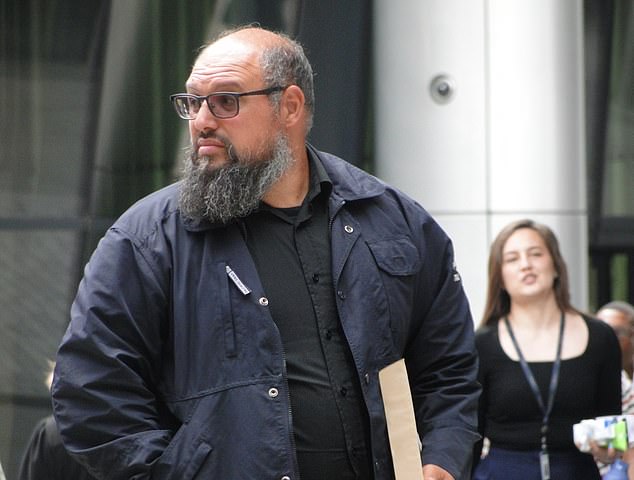A vicar has been found guilty of stealing £200 from his church’s Sunday collection after being caught on CCTV stealing the money.
Father Fortunato Pantisano challenged the charge, but was so unconvincing as a witness that magistrates said his testimony helped the prosecution against him.
The Italian-born priest, who was ordained at Westminster Cathedral in 2013, was based at Our Lady of Perpetual Help Church in Tynemouth Street, Fulham.
The 44-year-old was found guilty at City of London Magistrates’ Court of stealing the money, which was never returned, after the second mass on January 7.
Father Pantisano, who had to move into accommodation at St Edward’s Convent in Harewood Avenue, Marylebone, was bailed until September 17 for a pre-sentence report.
The trial heard that parish volunteer John McGranaghan reported the incident to police and placed the two wicker baskets in a locked office, which was also accessible from the priest’s home.
Father Fortunato Pantisano (pictured arriving at court) challenged the charge but was so unconvincing on the witness stand that magistrates said his testimony helped the prosecution.
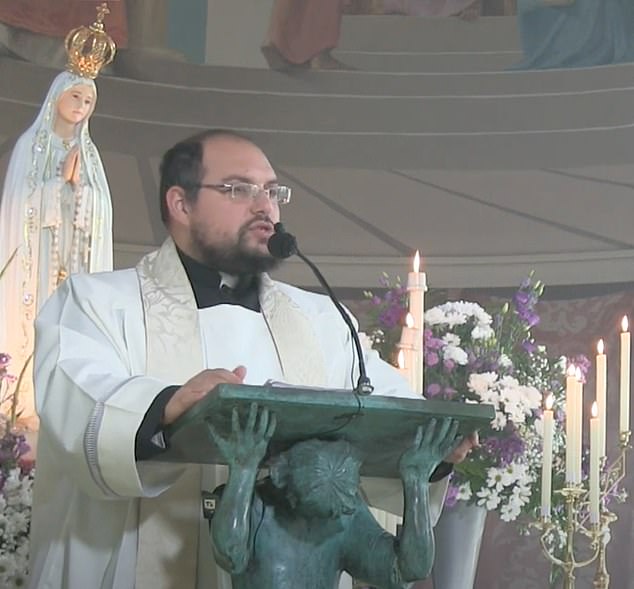
Father Pantisano was ordained at Westminster Cathedral in 2013. He is pictured speaking in the church.
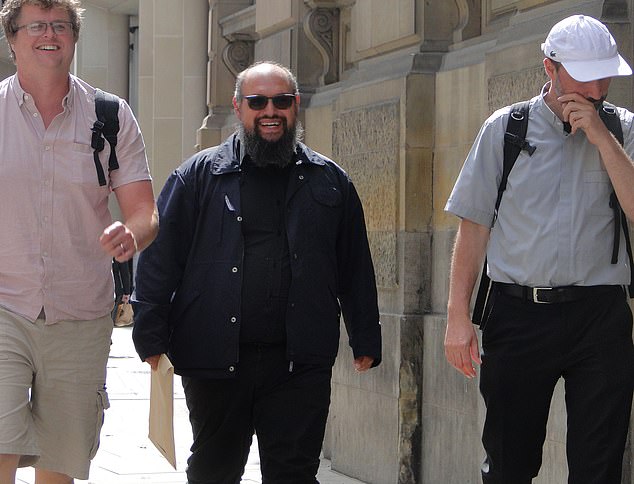
Pantisano pictured arriving at City of London Magistrates’ Court
“This was the collection that the parishioners took up for the two Masses that morning,” he said at the trial. “We counted the offertory again and there were two empty baskets and the collection was gone.”
He suggested that the collection money had recently gone missing from the church. “Because of what had happened in the previous weeks, I decided to recount the money that day.”
Fortunately, security cameras in the office showed Father Pantisano entering through an adjoining door, removing the two baskets containing cash from the room and then returning them empty.
The Director of Resources for the Diocese of Westminster, Robert Walker, told the court that there are strict rules regarding cash collections and that individual priests cannot simply keep the money.
“I basically see the money being passed from one hand to another and taken without authorization,” he said, referring to the security cameras. He makes individual notes of the baskets and walks away with the money.
“There was no reason for him to be there at that time, especially since he was suspended.”
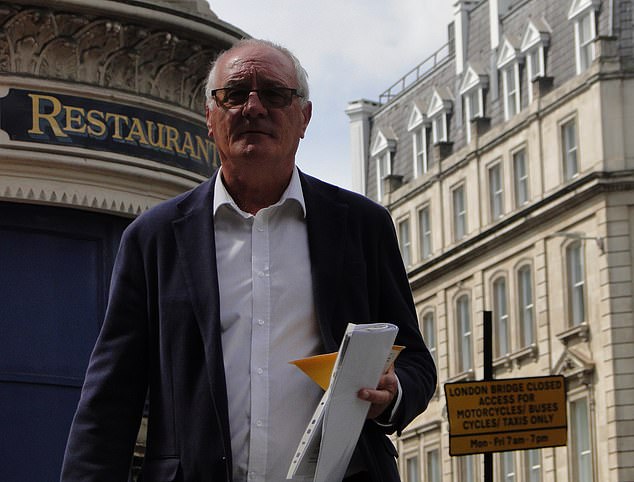
The trial heard that parish volunteer John McGranaghan (pictured) reported him to police.
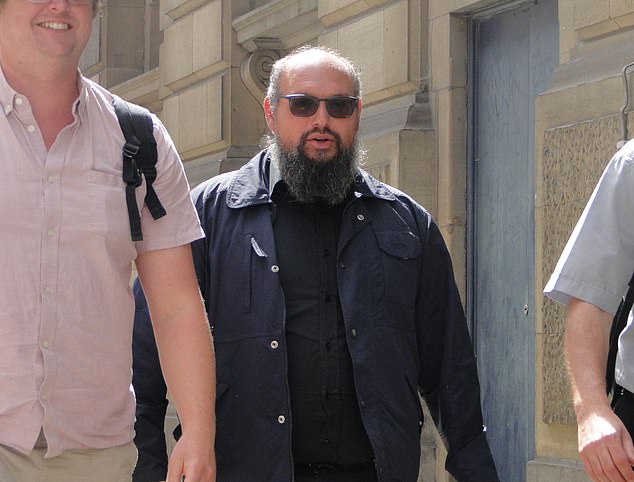
The Italian-born priest pictured arriving at City of London Magistrates’ Court
Father Pantisano was arrested on April 30 and gave a “no comment” interview at Hammersmith police station.
He said during the trial that he was not suspended and had a right to be in the office, but he could not remember whether he had taken any of the collection money.
‘I don’t remember taking any money. If I did, it wasn’t out of dishonesty, maybe it was to buy food, I don’t remember.
‘Sometimes there are emergencies, like homeless people who need money or charity, or priests need to buy food.’
Prosecutor Nathan Paine-Davey asked the priest: “It’s not credible to say that you don’t remember taking the money, is that right? That’s what brought you here today.”
“You walked into that office by opening the door from your side and took that money. That’s the truth, isn’t it?”
Father Pantisano replied: “I am the parish priest and I have the right to be there. The money is given so that the priests can decide what to do.”
‘I deny stealing and have no further comment.’
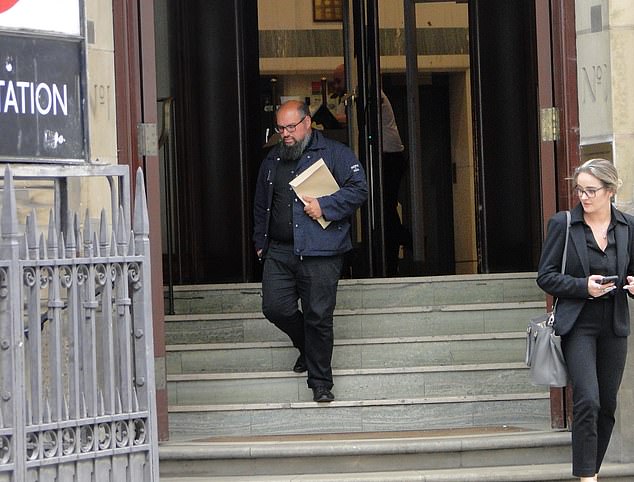
Fortunato Pantisano photographed with his lawyer Nina Reinach at the exit of the court
Mr Paine-Davey told magistrates: “The defendant cannot tell you why he had his hands in the baskets and moved them out of sight. That is not credible.
‘The purpose of removing the baskets was to steal money out of sight of the security cameras and only today we hear this vague and confusing account of what happened.
“You can’t just put your hand in a collection basket. That’s dishonesty.”
Father Pantisano’s lawyer, Nina Reinach, said: “It would be incredibly serious if he were found guilty of this offence. He is a man of good character who has never been in trouble and that is something to bear in mind.”
Finding him guilty, presiding judge Stuart McCaighy told the priest: ‘You removed money and envelopes of money from wicker baskets and took them to a room out of view of the security cameras.
‘You took money from those baskets and you could not give us any reason as to why you were in the office or a credible explanation as to why you were taking the money.
‘He gave no reason for having tampered with the money or any example of why the £200 was missing. His lack of credibility strengthened the case against him.
“We are certain beyond a reasonable doubt that you dishonestly appropriated this money. The court finds you guilty of this offence.”
In his statement on the impact of the situation, Walker said: “This has led to an incredible amount of distrust between the church and its members. It only takes one person to do something wrong to ruin the reputation of everyone else.”
Mr Paine-Davey added: “It is clear that this defendant holds a position of trust within the church community. That is an aggravating factor in terms of sentencing.”

